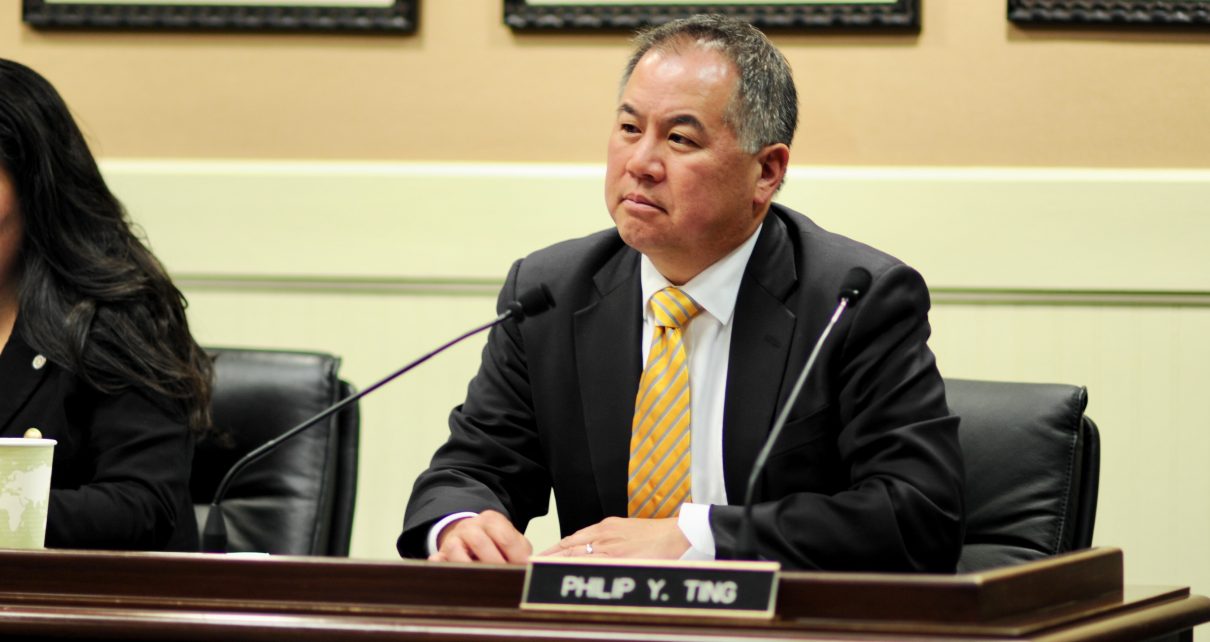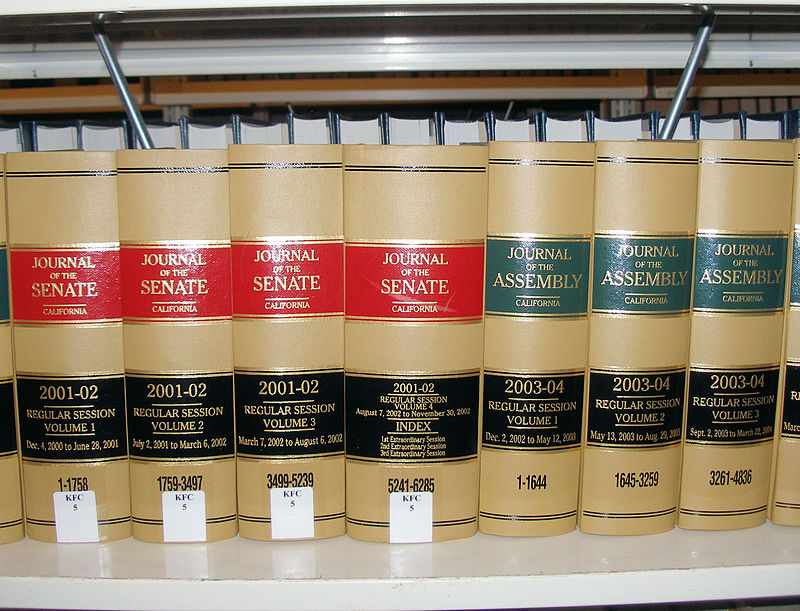
Assemblyman Philip Y. Ting. (Photo: Kevin Sanders for California Globe)
California Won’t Face Up To Crime
Phil Ting’s AB 1215 targets facial recognition technology, already banned in San Francisco
By Lloyd Billingsley, May 18, 2019 5:17 am
“The use of facial recognition and other biometric surveillance is the functional equivalent of requiring every person to show a personal photo identification card at all times in violation of recognized constitutional rights. This technology also allows people to be tracked without consent. It would also generate massive databases about law-abiding Californians, and may chill the exercise of free speech in public places.”
That is from the text of Assembly Bill 1215, by San Francisco Democrat Phil Ting. As the assemblyman told reporters, “Without my bill, face recognition technology can subject law-abiding citizens to perpetual police line-ups, as their every movement is tracked without consent.” Ting touted AB 1215 as “an important civil rights measure that will prevent exploitation of vulnerable communities.” The ACLU agrees.
“Body cameras should work for the people, not against the people,” explained Matt Cagle, ACLU Technology and Civil Liberties Policy attorney. “Face-scanning body cameras would be a dangerous, radical expansion of surveillance powers at a time when our top priority should be creating new approaches to public safety that work for all of us.” David Livingston of the California State Sheriff’s Association disagrees.
“Facial recognition, when used in public spaces, can be a powerful tool in enhancing public safety, identifying wanted criminals and deterring criminal activity,” Livingston told the Sacramento Bee. “This technology should not be rejected by the state or any other governmental agency without careful consideration of the adverse impacts that decision may have on public safety.” For many Californians, the standoff may recall the quest of mandatory DNA testing for felons.
In 1980, an attacker broke into an Orange County home, bound UC Irvine medical student Keith Harrington, 24, and his wife Patti and raped the woman before beating the couple to death. Police thought the Golden State Killer might be responsible, but they had no suspects. Keith’s brother Bruce Harrington became convinced that ‘the only way we can solve my family’s crime” was through DNA.
During the early 2000s, Harrington testified before the Assembly and the Senate public safety committees, “pleading that they embrace the power of DNA,” already proving effective in other states. Harrington’s pleas fell on deaf ears.
“All I see and hear from Senator Burton, his staff and his cronies is a buzz saw of opposition and obfuscation, focused more on the rights of prisoners than on the rights of their victims,” Harrington said in April, 2002. So the murder victim’s brother backed the 2004 Proposition 69, which required collection of DNA samples from those arrested or charged with a felony. The measure drew opposition from the ACLU.
“DNA is not like a fingerprint, since getting it is more invasive and it holds information beyond mere identification,” explained Tania Simoncelli, an ACLU science and technology fellow. “Storing it permanently for future criminal investigations doesn’t comply with the Constitution.” Voters disagreed and duly passed the measure on Nov. 2, 2004.
On April 2, 2018, the California Supreme Court upheld the measure. Dissenting justice Mariano-Florentino Cuéllar, a 2014 appointee of Gov. Jerry Brown, wrote: “The DNA Act unlawfully invades people’s reasonable expectation of privacy in their personal genetic information.”
On April 25, 2018, Sacramento District Attorney Anne Marie Schubert announced that DNA comparisons led to the arrest of Joseph James DeAngelo, 72. District Attorneys across the state were charging that DeAngelo was the Golden State Killer, the Original Nightstalker, and Sacramento’s East Area Rapist.
In attendance at the Sacramento press conference was Bruce Harrington, who recalled the opposition to his “Keep California Safe” DNA proposition. “Senator Burton of the Senate Public Safety Committee, I shamed you then and I shame you now. You were wrong.”
He told the suspect’s 51 rape victims to “sleep better tonight. He isn’t coming through the window. He is now in jail and he is history.” Harrington also defended the use of DNA for exonerating those wrongly accused and convicted.
In similar style, facial recognition technology could also play a role in identifying the guilty and clearing the innocent. That reality has not deterred promoters of AB 1215, and this week San Francisco became the first city to ban face recognition technology. Supervisor Aaron Peskin called the technology “uniquely dangerous and oppressive.”




